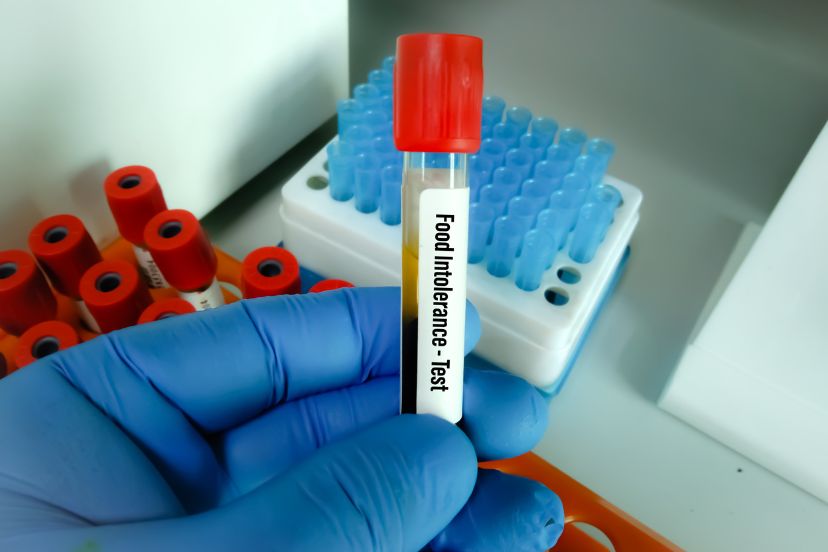Food Intolerance Blood Tests: My Journey
Introduction
Have you ever experienced discomfort or unexplained symptoms after consuming certain foods? Many people are unaware that food intolerances could be the culprit behind their health issues. Identifying these dietary triggers can be challenging, but advancements in medical science have provided us with a valuable tool: food intolerance blood tests. In this article, I will share my personal journey and delve into the effectiveness and benefits of food intolerance blood tests. Join me as we explore this insightful process and uncover the secrets to improving our overall well-being.
My Struggle with Unexplained Symptoms
Before discovering the world of food intolerance blood tests, I lived with persistent health issues that seemed to have no clear cause. From bloating and digestive discomfort to unexplained skin rashes, my quality of life was significantly affected. I underwent various medical examinations, but traditional allergy tests failed to provide answers. Frustrated and determined, I sought alternative solutions that led me to food intolerance blood tests.
What Are Food Intolerances?
Food intolerances are adverse reactions to certain foods that occur when the body struggles to digest or process specific components. Unlike food allergies, which involve an immediate immune response, food intolerances are often delayed and can take hours or even days to manifest symptoms. Common intolerances include lactose, gluten, and certain food additives. Identifying these triggers is crucial for managing symptoms and optimizing our diet.
The Role of Food Intolerance Blood Tests
Food intolerance blood tests have emerged as an effective means of identifying specific food sensitivities. These tests measure the levels of immunoglobulin G (IgG) antibodies in the blood, which are produced when the body recognizes certain food components as foreign invaders. By detecting elevated IgG levels, we can pinpoint potential intolerances and make informed dietary adjustments.
The Effectiveness of Food Intolerance Blood Tests
Numerous studies have demonstrated the effectiveness of food intolerance blood tests in identifying dietary triggers and managing related symptoms. One notable study by Hannah Karakula-Juchnowicz et al. (2018) observed a significant reduction in symptoms and improved quality of life among participants who followed personalized elimination diets based on the results of their food intolerance blood tests. This evidence highlights the valuable role these tests can play in enhancing our well-being.
Benefits of Food Intolerance Blood Tests
Personalized Approach:
Food intolerance blood tests provide personalized insights into our unique dietary needs. By identifying specific intolerances, we can tailor our eating habits to support our individual health goals.
Symptom Relief:
By eliminating or reducing the consumption of trigger foods, we can experience relief from a wide range of symptoms such as bloating, headaches, skin conditions, and digestive discomfort.
Improved Digestion:
Identifying and avoiding trigger foods can significantly improve digestion, leading to better nutrient absorption and overall gut health.
Enhanced Energy Levels:
By eliminating foods that cause intolerance-related fatigue, we can experience increased energy levels and improved vitality throughout the day.
Weight Management:
For some individuals, food intolerances can contribute to weight management challenges. By identifying and eliminating trigger foods, we can support weight loss or maintenance goals more effectively.
Factors to Consider Before Undergoing a Food Intolerance Blood Test
Medical Guidance:
It is essential to consult with a qualified healthcare professional before undergoing a food intolerance blood test. They can assess your symptoms, medical history, and guide you through the process.
Cost and Accessibility:
Food intolerance blood tests may vary in cost and availability. Consider your budget and the availability of reputable laboratories or healthcare providers offering these tests.
Nutritional Guidance:
Once you receive your test results, seeking nutritional guidance from a registered dietitian or nutritionist can help you create a well-balanced, nutritious meal plan that accommodates your dietary restrictions.
My Experience with a Food Intolerance Blood Test
When I decided to undergo a food intolerance blood test, I sought guidance from my healthcare provider. They recommended a reputable laboratory and provided me with a comprehensive overview of the process. The test itself was a simple blood draw, and within a few days, I received my personalized report detailing my food sensitivities.
Conclusion
Discovering and addressing food intolerances can have a profound impact on our overall well-being. Food intolerance blood tests offer an effective and personalized approach to identifying dietary triggers, allowing us to make informed choices that alleviate symptoms and improve our quality of life. By embarking on this enlightening journey, we can unlock the secrets to a healthier, happier, and more vibrant existence.
FAQs:
Are food intolerance blood tests covered by insurance?
Food intolerance blood tests may or may not be covered by insurance. It depends on your insurance provider and the specific coverage you have. It’s advisable to contact your insurance company directly to inquire about coverage for these tests.
Can food intolerance blood tests diagnose food allergies?
No, food intolerance blood tests are specifically designed to identify food intolerances, not food allergies. Food allergies involve an immediate immune response, often resulting in severe symptoms such as difficulty breathing or anaphylaxis. If you suspect a food allergy, it’s essential to consult with an allergist who can conduct specific allergy tests.
How long does it take to receive the results of a food intolerance blood test?
The turnaround time for food intolerance blood test results varies depending on the laboratory or healthcare provider conducting the test. Typically, results are available within a few days to a couple of weeks. It’s best to inquire about the estimated timeframe when scheduling your test.
Do food intolerance blood tests require fasting beforehand?
In most cases, food intolerance blood tests do not require fasting beforehand. However, it’s advisable to follow any specific instructions provided by the laboratory or healthcare provider conducting the test. They will provide you with the necessary guidelines to ensure accurate results.
Can food intolerances develop later in life?
Yes, food intolerances can develop at any age. While some individuals may have lifelong intolerances, others may develop them later in life due to various factors such as changes in the gut microbiome, hormonal fluctuations, or changes in the immune system. If you suspect a food intolerance, it’s essential to consult with a healthcare professional for proper evaluation and guidance.




